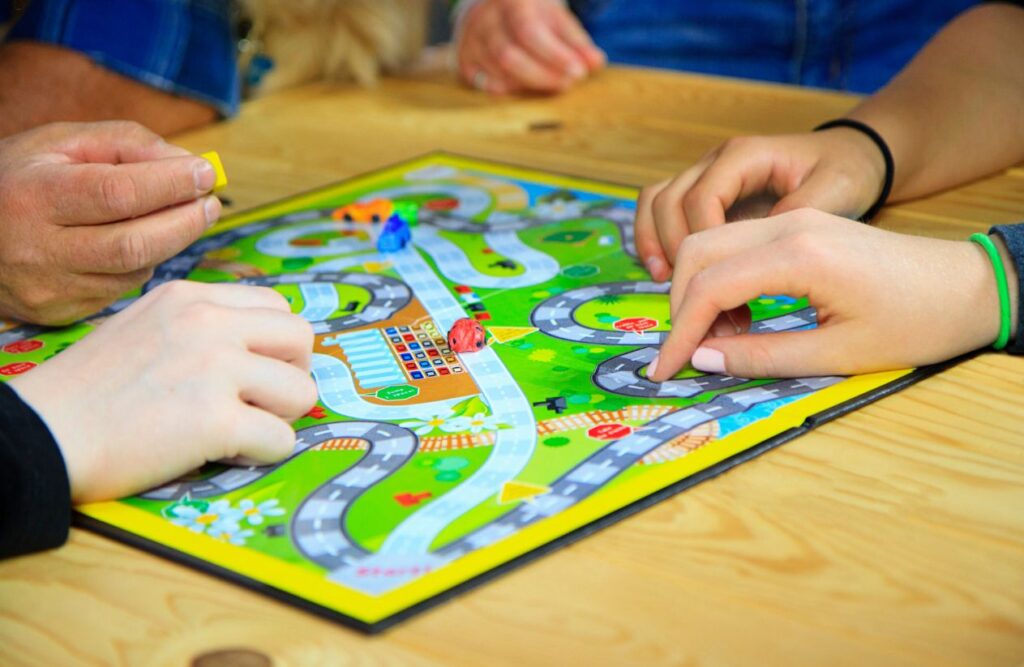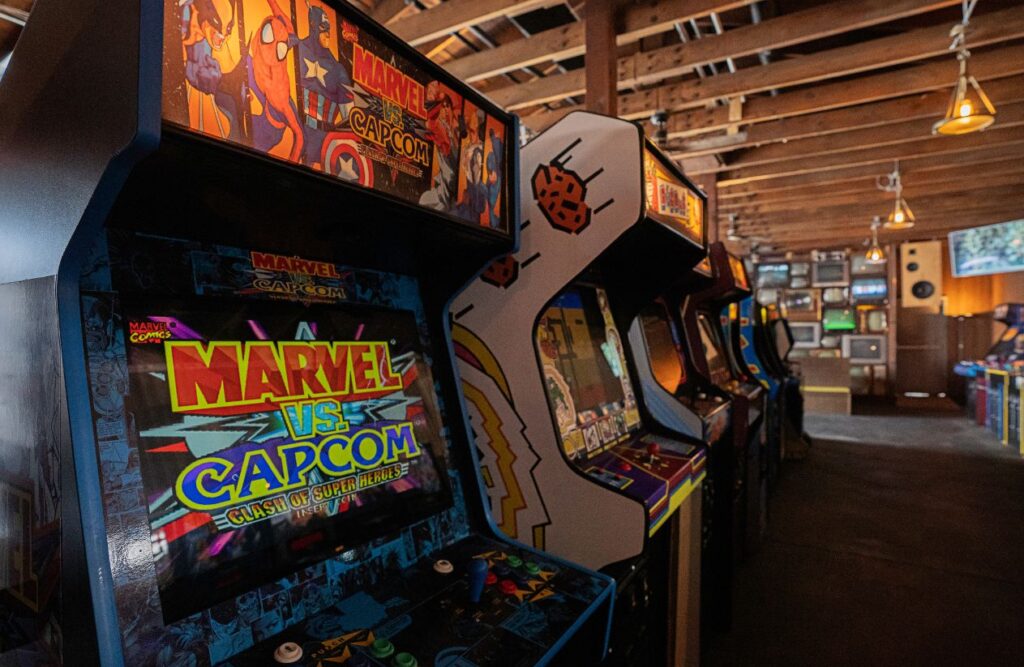We’ve all been to family events where the entertainment fell flat. Maybe the kids were bored, or the adults were disengaged. Choosing the right entertainment can make or break a gathering. Entertainment is key to creating memorable experiences for everyone, but finding options that appeal to all ages can be a challenge.
This guide on how to choose entertainment for family-friendly events is here to help. We’ll explore how to select entertainment that delights everyone from toddlers to grandparents.
From considering your audience and budget to exploring different entertainment types, we’ll ensure your next family event is a resounding success. Let’s make it a hit!
Understanding Your Audience: Who Are You Entertaining?

Before booking a bouncy castle or hiring a DJ, take a moment to consider your audience. Understanding who you’re entertaining is the most crucial step in choosing successful entertainment.
- Age Range of Attendees: Different age groups have vastly different needs and interests. Babies and toddlers might enjoy soft play areas and simple sensory activities. Young children might be thrilled with face painting or a magic show. Teenagers might prefer music, games, or interactive experiences. Adults often appreciate live music, conversation areas, or activities they can participate in with their children. Seniors might enjoy quieter activities like bingo, sing-alongs, or storytelling.
- Mix of Ages: When you have a wide range of ages, the key is to offer a variety of entertainment options. This allows everyone to find something they enjoy without feeling left out. Consider having a designated area for younger children, while older kids and adults can participate in other activities.
- Interests and Preferences: Think about the general vibe you want to create. Is it a high-energy party or a relaxed gathering? This will help you determine whether to go for active entertainment (like games and sports) or more passive entertainment (like a live band or a movie screening). You can also try to gauge general interests by sending out a simple questionnaire with the invitation or talking to key family members or organizers.
- Cultural Considerations: It’s essential to be mindful of the cultural backgrounds of your guests. Ensure the entertainment you choose is appropriate and respectful of different traditions and sensitivities. For example, music choices should be inclusive and avoid anything potentially offensive.
By carefully considering these factors, you can choose entertainment that resonates with everyone and creates a truly enjoyable experience for all.
You can also check our article about: Hiring Entertainment for Large vs Small Events
Types of Entertainment for Family-Friendly Events: A Comprehensive Overview

Imagine this: You’re hosting a family reunion. You envision laughter echoing through the air, children running and playing, and adults reconnecting over shared memories. But the reality could be vastly different if the entertainment falls flat.
Picture bored kids glued to their phones, awkward silences among the adults, and an overall sense of disconnect. The difference between these two scenarios? Choosing the right entertainment. It’s not just about filling time; it’s about creating an atmosphere, fostering connections, and building memories that will last a lifetime.
Think of it as setting the stage for a story to unfold – the story of your event. And just like any good story, it needs engaging characters (your entertainment) to bring it to life.
So, let’s explore the different “characters” you can cast for your event’s narrative, with a detailed look at various entertainment categories to help you find the perfect fit:
Interactive Entertainment: Get Everyone Involved

Interactive entertainment encourages active participation and creates memorable shared experiences.
- Games and Activities: Games offer friendly competition and fun for all ages. Consider a mix:
- Lawn Games: Classics like cornhole, giant Jenga, ladder toss, and badminton are great for outdoor events.
- Board Games & Card Games: Set up tables with various board games or card games suitable for different age groups. This works well indoors or in designated areas.
- Scavenger Hunts & Treasure Hunts: These can be tailored to any age group and theme, encouraging teamwork and exploration.
- Sports & Active Games: Organize a friendly soccer game, volleyball match, or even a relay race to get everyone moving.
- Performers: Skilled performers can captivate audiences of all ages.
- Magicians: A good magician can amaze and entertain both children and adults with illusions and sleight of hand.
- Clowns: While traditionally for younger children, some clowns offer more sophisticated performances that appeal to a wider audience.
- Face Painters & Balloon Artists: These are always a hit with kids, and some artists offer intricate designs that even adults appreciate.
- Caricaturists: A fun and unique way to capture memories of the event, caricaturists can create personalized keepsakes for guests.
- DIY Entertainment: These options empower guests to be creative and entertained at their own pace.
- Craft Stations: Set up stations with various craft supplies related to your event’s theme. This can range from simple coloring pages for kids to more complex crafts for adults.
- Photo Booths: Provide props, backdrops, and even instant printing for a fun and interactive photo experience. Consider a themed photo booth to match your event.
- Karaoke: A great way to get people singing and having fun, karaoke can be enjoyed by all ages (with appropriate song choices, of course!).
Passive Entertainment: Relax, Sit Back, and Enjoy

Passive entertainment provides a more relaxed atmosphere and allows guests to enjoy a shared experience without requiring active participation.
- Music: Music sets the tone and creates ambiance.
- Live Bands: A live band can bring energy and excitement to any event, but consider the style of music and ensure it’s appropriate for all ages.
- DJs: A skilled DJ can create a seamless mix of music to keep the party going, catering to different tastes throughout the event.
- Playlists: Curated playlists are a budget-friendly option. Create playlists for different moods or activities, ensuring a good mix of genres and eras.
- Movies and Screenings: A movie night can be a relaxing and enjoyable experience.
- Outdoor Movie Screenings: Project a movie onto a large screen outdoors for a unique and memorable experience.
- Indoor Movie Screenings: Perfect for smaller gatherings or inclement weather, an indoor movie screening can be just as enjoyable.
- Storytelling and Performances: These can be captivating and engaging, especially for younger audiences.
- Storytellers: Professional storytellers can weave captivating tales that transport listeners to another world.
- Puppet Shows & Theatrical Performances: These can be entertaining for children and adults alike, depending on the style and content.
If you’re looking for a live performer for your event, you can check the list below for live performers that you can book or hire for the event:
Venue-Specific Entertainment: Leveraging Existing Features

Maximize the potential of your chosen venue by utilizing its existing features.
- Playgrounds and Play Areas: If your venue has a playground, make sure it’s safe and age-appropriate. Consider hiring a supervisor for larger events.
- Arcades and Game Rooms: These can provide hours of entertainment, especially for teens and young adults.
- Nature Walks and Outdoor Activities: If your event is outdoors, organize guided nature walks, hikes, or other outdoor activities to encourage exploration and appreciation of the natural environment.
By considering these expanded options, you can create a truly memorable and enjoyable experience for everyone at your family-friendly event.
Key Factors to Consider When Choosing Entertainment: The Practical Side of Fun

It’s easy to get caught up in the excitement of envisioning the perfect entertainment for your family-friendly event. However, overlooking practical considerations can lead to unforeseen problems and dampen the overall experience.
From budget constraints to venue limitations and logistical challenges, there are several key factors to address to ensure everything runs smoothly. Here are some essential points to keep in mind:
- Budget: Before you get carried away with extravagant ideas, set a realistic budget. Knowing how much you can spend will help you narrow down your options and prevent overspending. Remember to factor in not just the cost of the entertainment itself, but also any associated costs like rentals, travel expenses for performers, and materials for DIY activities. There are fantastic entertainment options available at various price points, so careful planning will help you find something that fits your budget without sacrificing fun.
- Space and Venue: The size and layout of your venue will significantly impact your entertainment choices. A small indoor space won’t be suitable for a bouncy castle, while a large open field might be perfect for lawn games but less ideal for an intimate storytelling session. Consider the dimensions of the space, ceiling height (for things like balloon drops), and available floor space. If you’re using an outdoor space, check for uneven ground or other potential hazards.
- Time of Day and Duration of Event: The time of day and how long your event lasts will also influence your entertainment choices. A daytime event might be perfect for outdoor games and activities, while an evening event might be better suited for a movie screening or a live band. For shorter events, you might choose one or two key entertainment options, while longer events might require a wider variety to keep guests engaged.
- Logistics and Setup: Think about the practical aspects of setting up and running your chosen entertainment. Will you need to rent any equipment, such as sound systems, lighting, or tables and chairs? Do you have access to adequate power sources? Who will be responsible for setting up and tearing down the entertainment? If you’re hiring performers, confirm their arrival time, setup requirements, and any specific needs they might have.
- Weather (for outdoor events): If your event is outdoors, weather is a crucial factor. Have a solid contingency plan in case of inclement weather. This could include having a backup indoor space, renting tents or marquees, or having alternative entertainment options that can be easily moved indoors. Don’t let a little rain ruin your event; be prepared!
By considering these practical factors, you can ensure that your chosen entertainment is not only fun but also feasible and well-executed.
Making the Decision: Putting It All Together

Now that you’ve explored the different types of entertainment and considered the key factors, it’s time to make a decision. Here’s a step-by-step process to guide you:
- Define Your Audience: Start by revisiting your understanding of who you’re entertaining. Consider the age range, mix of ages, interests, and any cultural considerations. This is the foundation upon which all your other decisions will be built.
- Set a Budget: Determine how much you can realistically spend on entertainment. This will help you narrow down your options and avoid overspending. Be sure to include potential extra costs, such as rentals, travel, and supplies.
- Brainstorm Entertainment Options: Based on your audience and budget, brainstorm a list of potential entertainment options. Don’t be afraid to think outside the box and consider a variety of interactive, passive, and venue-specific choices. Use the information from Section III to spark your creativity.
- Evaluate Each Option Based on the Key Factors: For each entertainment option on your list, carefully consider the key factors discussed in Section IV: space and venue, time of day and duration of the event, logistics and setup, and weather (if applicable). This will help you determine which options are truly feasible and will work best for your event. Create a simple pros and cons list for each option if it helps.
- Make a Decision and Book the Entertainment: Once you’ve evaluated all your options, choose the one that best fits your audience, budget, and venue. If you’re hiring performers or renting equipment, book them as soon as possible to avoid disappointment. Confirm all details in writing, including dates, times, costs, and any specific requirements.
The Importance of Having Backup Plans:
Even with the best planning, things can sometimes go wrong. That’s why it’s crucial to have backup plans. For example:
- Weather: If you’re planning an outdoor event, have a backup indoor space or a plan for moving activities indoors if it rains.
- Performer Cancellations: Have a list of alternative performers or entertainment options in case your original choice cancels at the last minute.
- Equipment Malfunctions: If you’re renting equipment, have a backup plan in case it malfunctions. This could mean having a spare piece of equipment or having an alternative activity ready.
By following these steps and having backup plans in place, you can confidently choose entertainment that will make your family-friendly event a resounding success.
Conclusion
Planning successful family events hinges on choosing the right entertainment. This guide has covered key aspects, from understanding your audience and setting a budget to exploring various entertainment types and considering practical logistics.
Remember, thoughtful planning is crucial for creating lasting memories. Knowing how to choose entertainment for family-friendly events ensures everyone has a great time. We encourage you to share your own tips and experiences in the comments below – your insights can help others plan their perfect gathering!
Related Content: How to Book the Right Entertainment for Any Event






